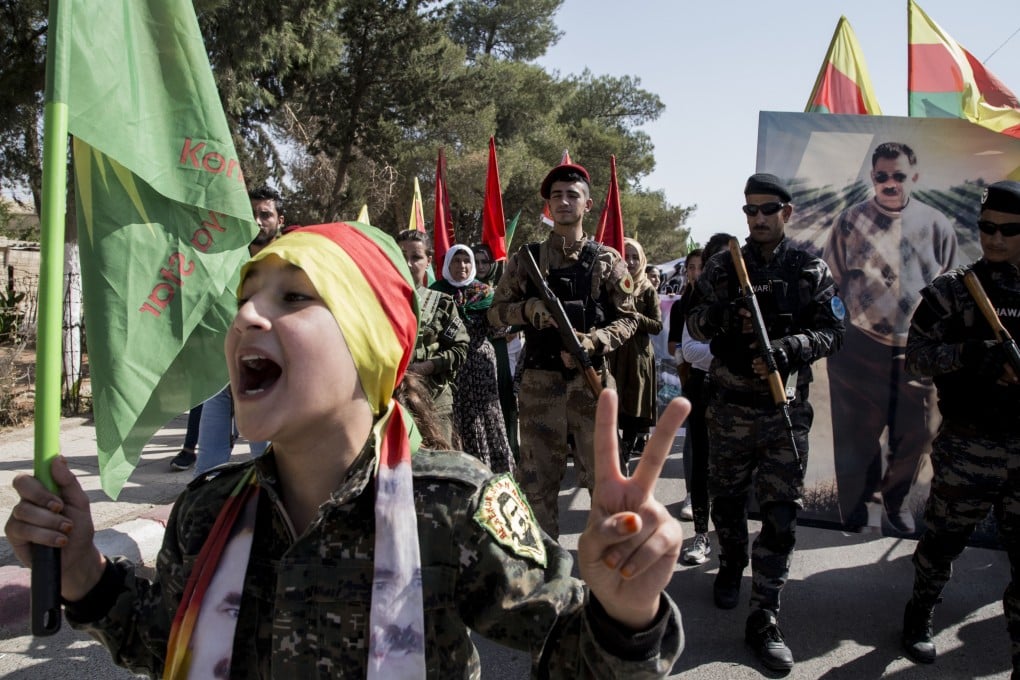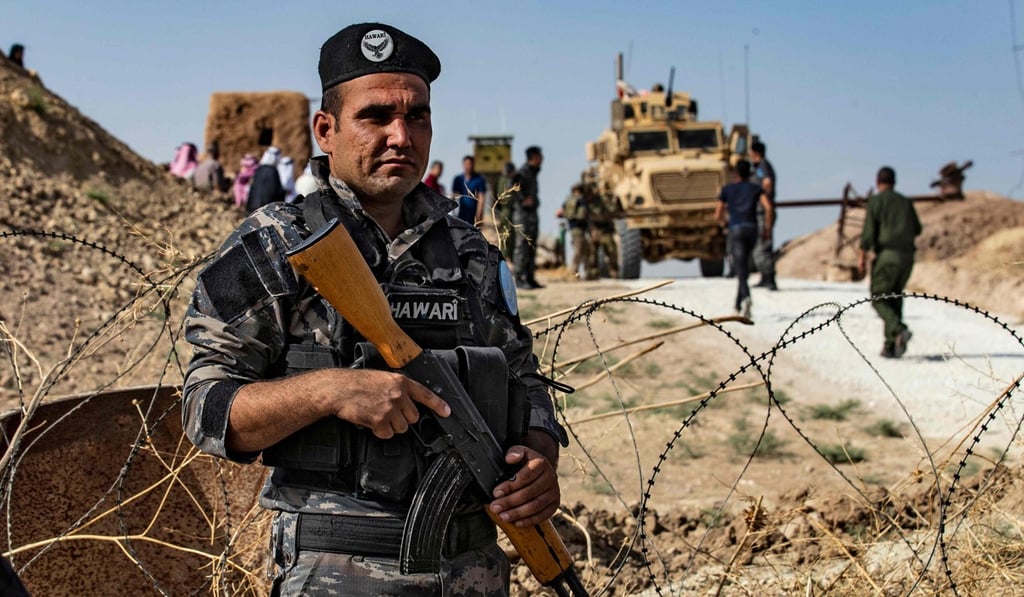Explainer | Explained: why are Syria’s Kurds accusing the US of betrayal?
- Earlier this year, Kurdish-led forces, with backing from a coalition made up of the US and dozens of other countries, took Isis’s last territory in Syria and eliminated its caliphate
- Turkey’s aim is to expel the Kurdish fighters from a 20-mile buffer zone along Syrian-Turkish border and to completely crush the Syrian Kurdish fighters and stop their nascent state

Who are the Kurdish fighters?

How did they become important to the US?
In the beginning of the war, they weren’t. The US instead was giving support to the Free Syrian Army, a disparate group of rebel factions fighting Assad that had also clashed with the Kurds.
But in 2014, Islamic State (Isis) extremists began a blitz from the shadowlands on the Iraqi-Syrian border. They scythed through northern Iraq, adding to territories they had already taken in Syria to expand their caliphate.
In September of that year, they laid siege to Kobani, a Kurdish-controlled city along the border with Turkey. The city was about to fall to the extremists when the US intervened, using air strikes and the YPG’s help to push them back. The effort became a blueprint for a partnership between the Americans and the Kurds. Unlike various Syrian rebel groups, the YPG was eager to fight Isis.
Washington lavished the Kurdish fighters with weapons and training and dispatched special forces teams and air power to pave the way for their offensives against the extremists. And it made them the core of a grouping of militias it called the Syrian Democratic Forces, or SDF.
